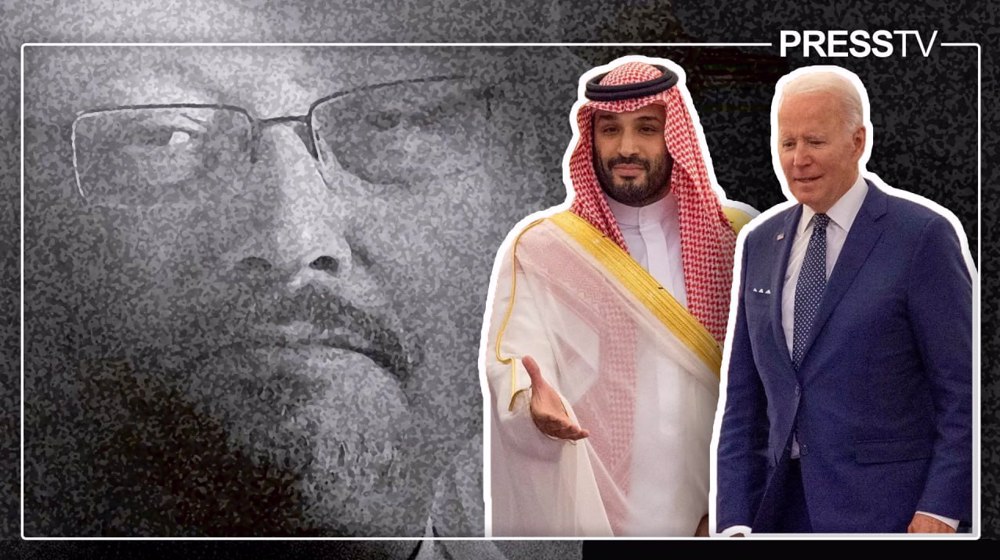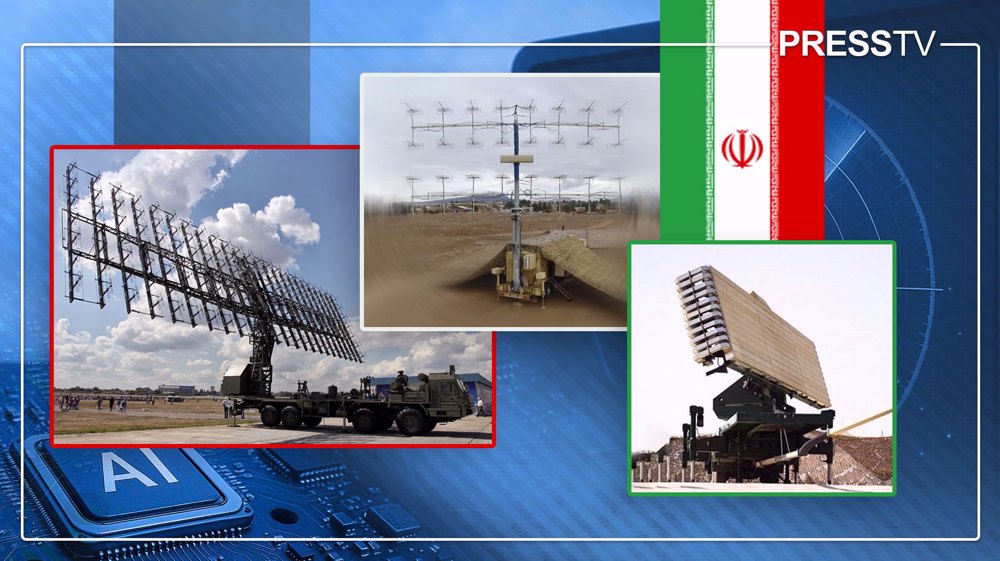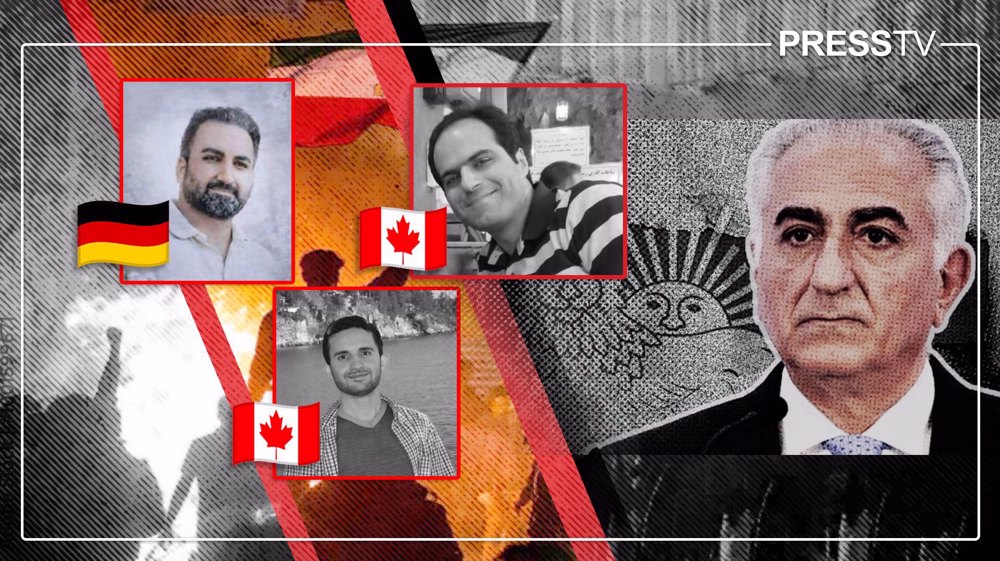Five years since Khashoggi murder, justice denied as MBS befriends Biden
By Kit Klarenberg
October 2nd marks the fifth anniversary of the murder of Saudi journalist and dissident Jamal Khashoggi at Saudi Arabia’s consulate in Istanbul, Turkey.
The horrific murder sent shockwaves across the world, generated an enormous level of public and media interest, elicited official investigations in multiple countries, threatened to sever US ties with Riyadh, and led to the conviction of multiple Saudi operatives for the crime.
Yet, five years on, his family and friends are no closer to securing justice, and the Empire has very much returned to business as usual.
On October 2, 2018, at around 13:14pm (10:14 GMT), Khashoggi entered the Saudi Arabian consulate in Istanbul to obtain documents related to his planned marriage with Hatice Cengiz, a 36-year-old Turkish PhD student.
CCTV cameras captured his arrival, but not his departure from the consulate. Quickly declared a missing person, Saudi officials initially professed ignorance at what had transpired, claiming Khashoggi had left the building alive.
It was not until October 15th, almost two weeks later, that Turkish officials inspected the building. They identified compelling evidence that Khashoggi had been murdered and chemical experts tampered with the scene to conceal clues.
Little did Riyadh know that Turkish intelligence had long-bugged the consulate, and captured both the planning and execution of Khashoggi’s assassination in meticulous detail.
Almost immediately after he arrived, Saudi agents began strangling him, while others brandished a bone saw, ready to carve his dead body into transportable pieces once the wicked deed was done.
His last recorded words were: “I can’t breathe.”
These shocking disclosures prompted the Saudi government to change its story. Khashoggi had been killed - albeit during an inexplicable fistfight, it said.
Riyadh’s account evolved rapidly and wildly over the coming weeks. US intelligence intercepts revealed Mohammed bin Salman gave direct orders to lure Khashoggi into the embassy, in order to bring him back to Saudi Arabia in an illegal extraordinary rendition.
American spy agency CIA then announced it assessed the Saudi Crown Prince had in fact personally directed the assassination plot outright.
For the US intelligence community to throw Riyadh under a bus so precipitously was unprecedented. The relationship between the US and Saudi Arabia, fittingly forged on Valentine’s Day 1945 on the deck of an American cruiser in the Suez Canal, was predicated on Washington ensuring the House of Saud’s continued existence, in return for a never-ending supply of cheap oil.
Remaining tightlipped about the House of Saud’s domestic tyranny and global proselytizing for violent, extremist Salafism was an uncodified annex of that agreement.
Western journalists were all along heavily implicated in this con. When Bin Salman seized power in June 2017, he was hailed by the allegedly liberal Guardian as “a risk-taker with a zeal for reform,” while many reporters and pundits praised his aggressive moves against Iran and Lebanon.
When the US turned on him though, suddenly the Western media was awash with stories of Riyadh’s human rights abuses, torture and murder of dissidents, and the tendency of government critics to mysteriously vanish.
‘Undertake Sensitive Actions’
A June 2019 Office of the United Nations High Commissioner for Human Rights report on Khashoggi’s murder sketched a highly detailed account of what occurred that fateful day in the Embassy, and the 15-member hit squad that traveled to and from Istanbul for the purpose.
Its findings were unambiguous. As the culprits were Saudi state officials who “acted in their capacity as state officials, with state means at their disposal,” Riyadh was culpable for the killing.
A Director of National Intelligence report, declassified in February 2021 upon the Joe Biden administration’s orders, was even more unflinching.
It detailed “the direct involvement of a key adviser and members of Muhammad bin Salman’s protective detail in the operation,” and “the Crown Prince’s support for using violent measures to silence dissidents abroad”:
“[Bin Salman] fostered an environment in which aides were afraid that failure to complete assigned tasks might result in him firing or arresting them…aides were unlikely to question [his] orders or undertake sensitive actions without his consent,” the report noted.
The release led to Washington imposing sanctions and travel bans on several Saudi security officials. Fast forward to November 2022, the Biden administration ruled that Bin Salman had immunity from prosecution in a civil case brought in the US against him and his key accomplices, by Khashoggi’s family.
In a manner comparable to Washington’s failed fantasies of decoupling from China, the US ambition to at long last jettison its longstanding, dark embrace of Saudi Arabia was simply too difficult in practice, economically and geopolitically.
While some Democratic lawmakers and rights groups worked themselves up into a public frenzy over Khashoggi’s murder, then-Oval Office resident Donald Trump was considerably more restrained. He even went to the extent of publicly disavowing the CIA’s assessment of Bin Salman’s guilt.
Behind-the-scenes accounts suggest Trump boasted, “I saved his a**” to aides in reference to the Crown Prince. His reason was simple - Riyadh’s ongoing bond with Washington ensured the latter billions in arms sales annually.
Over a dozen EU countries, including Britain, France and Germany, enjoying similar trading relationships with Saudi Arabia was remarked upon at the time as a primary cause for pronounced European silence and/or inaction on Khashoggi’s murder.
Moreover, Trump and Bin Salman had a common enemy, in the form of Tehran. Having undone the Barack Obama-era nuclear deal, which freed the Islamic Republic from crippling sanctions and offered the prospect of peace and stability in West Asia more widely, it is increasingly clear that the President was gearing up for all-out war with Iran in his first term.
Were that to happen, Washington would require Saudi Arabia very much on its side.
Irrational, belligerent enmity towards Tehran also played a role in Turkey’s climbdown on holding Saudi Arabia to account over Khashoggi.
After doing so much to incriminate Riyadh and Bin Salman in the immediate aftermath of the murder, there was every sign that officials in Istanbul were determined to prosecute the high-ranking suspects involved, with or without the Kingdom’s assistance.
A detailed and persuasive indictment based on analysis of mobile phone records, entry and exit information, CCTV footage, witness statements, forensic analysis of digital devices including Khashoggi’s computer, and more was unsealed in March 2020.
Riyadh’s refusal to hand over the 20 suspects, which included high-ranking security and intelligence officials, was no deterrent.
Istanbul moved to prosecute them in absentia, seeking life sentences for first-degree murder for almost all it claimed were involved. Yet, in April 2022, a Turkish court ordered the transfer of the trial to Saudi Arabia, where many of the suspects had already been acquitted.
No explanation was forthcoming, but the Biden administration showing little sign of giving up on the suicidal objective of war with Iran may account for why.
‘Advanced Knowledge’
There is another dimension to the wide-ranging modern-day Omertà on Khashoggi’s murder to consider. Gravely, it may be the most crucial component of all in guaranteeing the slain dissident journalist’s family will never secure the justice they so richly deserve.
After taking office, the Biden administration not only took the lead on releasing information related to Khashoggi’s killing but also declassified vast tranches of documents related to 9/11, in response to demands from the families of those killed in the attacks.
Largely ignored by mainstream journalists, the files contained countless bombshell disclosures, indicating that compelling evidence implicating Saudi intelligence operatives in the mass terror strike had been collected by FBI investigators. In 2017, the Bureau secretly ruled:
“There is a 50/50 chance [Riyadh] had advanced knowledge the 9/11 terrorist attacks were to occur.”
Seismic as those tranches may have been, blaming Saudi Arabia for 9/11 was a thoroughly “safe” option a decade later. The mainstream media openly speculated Riyadh played some clandestine role or other in the event for years prior, and victims’ families had long sought to hold its government accountable in US courts.
One might speculate the Saudis were set up as an ideal fall guy by the true perpetrators. That’s just one reading of a remarkable 2021 court filing, released in April.
The document summarises findings of an investigation by the Office of Military Commissions, a Guantanamo Bay legal body, into Riyadh’s connections to the attacks.
The probe concluded that several Saudi spies played a key role in recruiting, handling and monitoring purported 9/11 hijackers. Yet, they were not operating upon instructions from Saudi Arabia, let alone their own initiative. Instead, their activities were expressly directed and funded by the CIA.
This surely accounts for why the push to blame Saudi Arabia for 9/11 has lost momentum, and Western appetites for prosecuting Khashoggi’s killers and penalizing the Kingdom for sponsoring his murder have dwindled.
To do either runs the dire risk of Riyadh disclosing some extremely uncomfortable, long-concealed truths from the perspective of the US Empire’s true rulers, a prospect that cannot be countenanced.
It is unlikely 9/11 was discussed at CIA chief Bill Burns’ impromptu, unannounced meeting with Bin Salman in April. The summit was hurriedly arranged after constructive diplomatic negotiations between Saudi Arabia and the Islamic Republic raised the prospect of peace in Yemen at last, after years of grinding, genocidal warfare against its legitimate government by Riyadh.
But the urgency of his missions amply demonstrates the House of Saud remains too valuable - and too knowledgeable - to abandon just yet.
VIDEO | Press TV's news headlines
Paris silencing pro-Palestine voices
Iran raises alarm at ‘environmental consequences’ of US militarism
Iran: UN Security Council inaction on Israeli crimes ‘catastrophic’
Report: US intel debunks Trump's claim of Iran working on ICBMs
Vance says 'skeptic of military intervention' after progress in Iran talks
VIDEO | Third round of Iran-US nuclear talks concludes in Geneva
Geneva talks: Iran signals firm resolve, rejects US pressure, proceeds with cautious optimism










 This makes it easy to access the Press TV website
This makes it easy to access the Press TV website